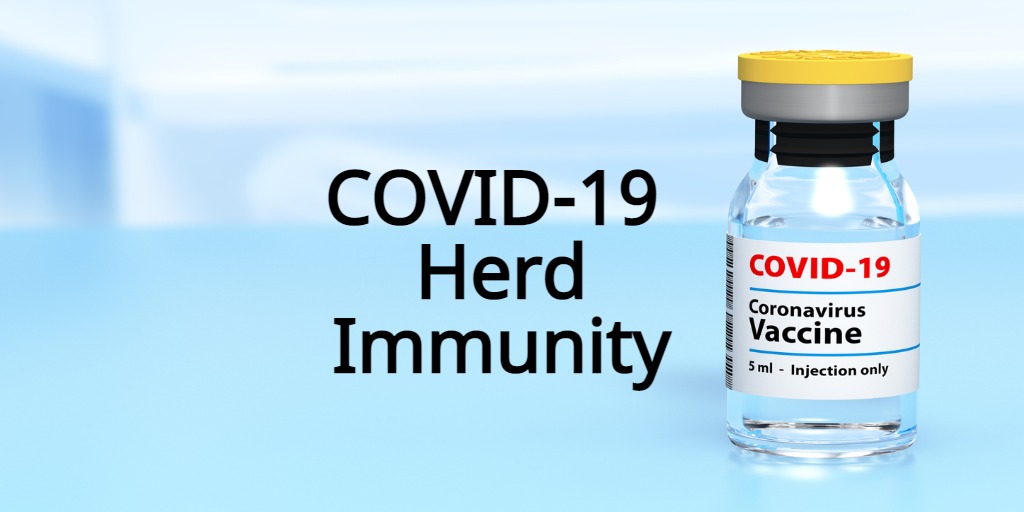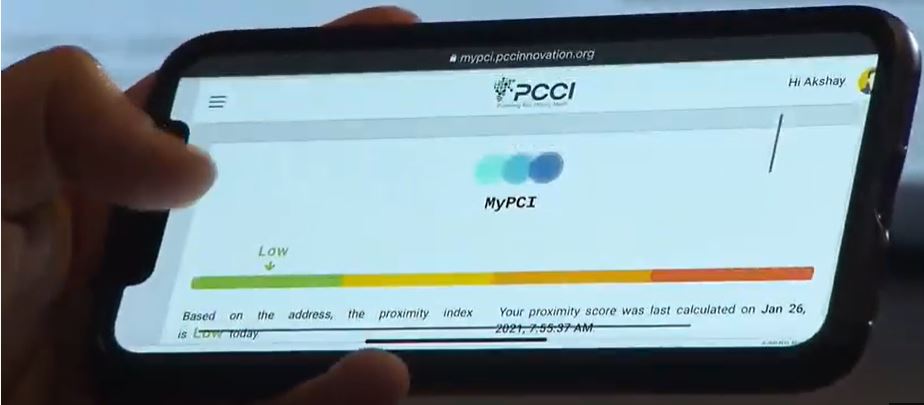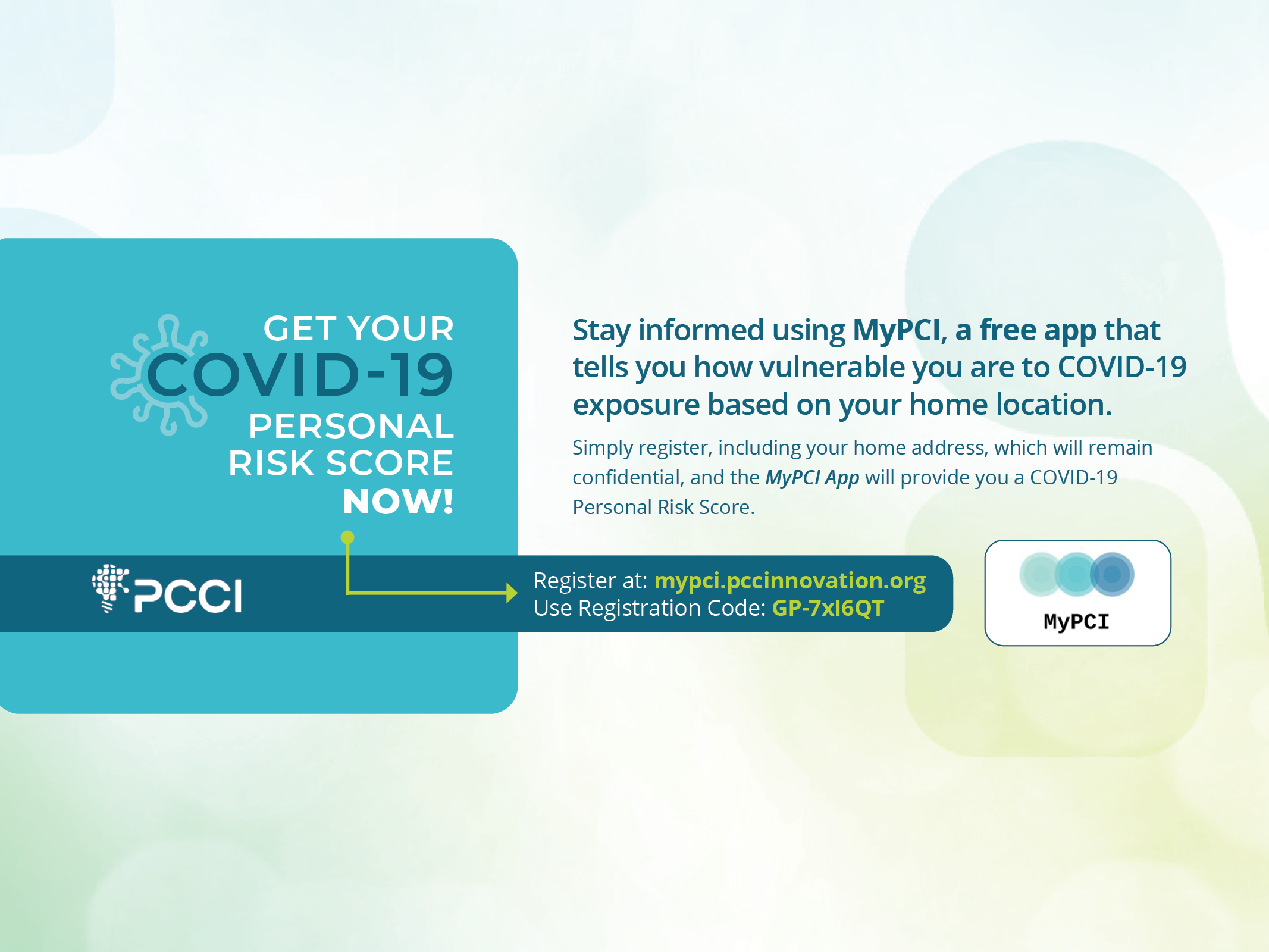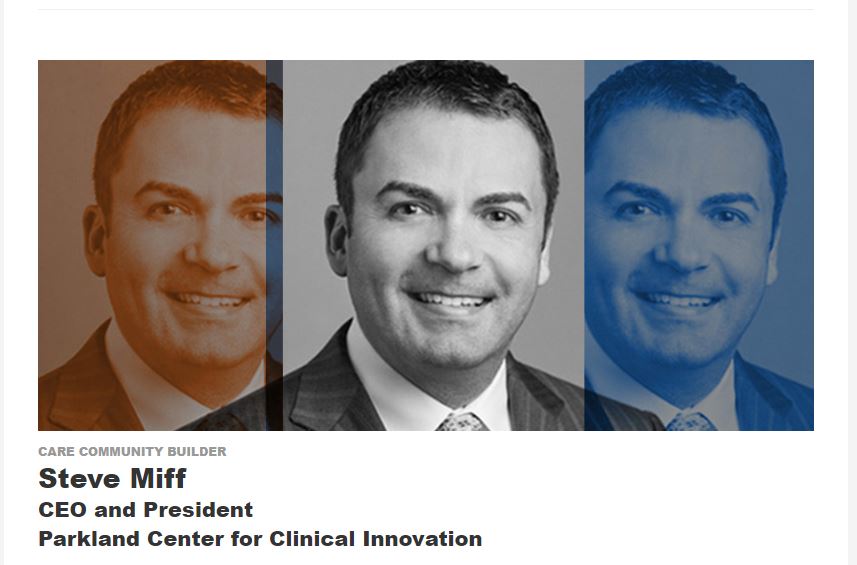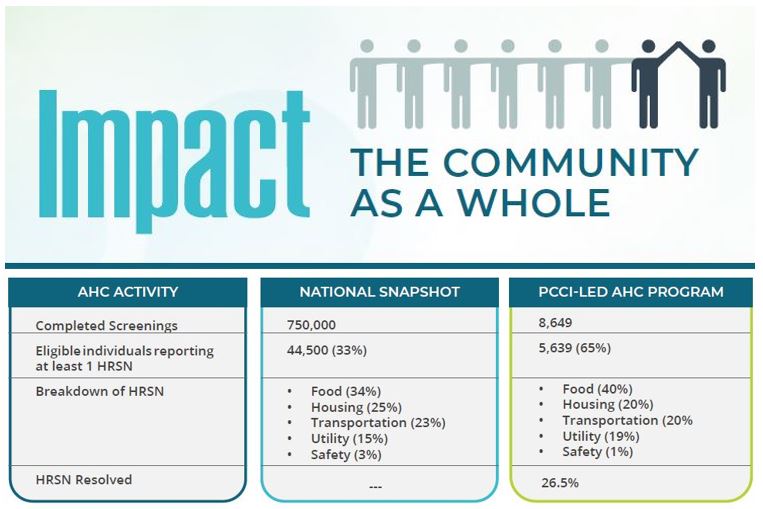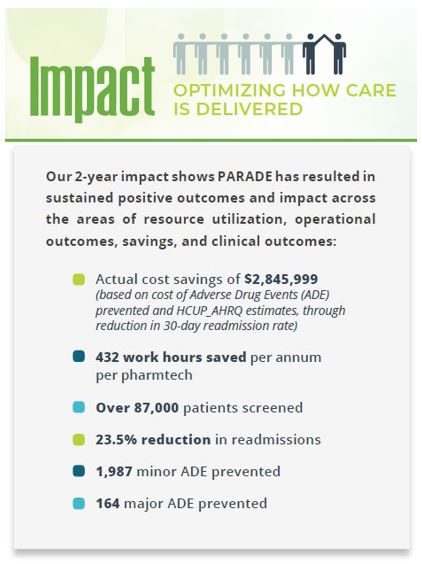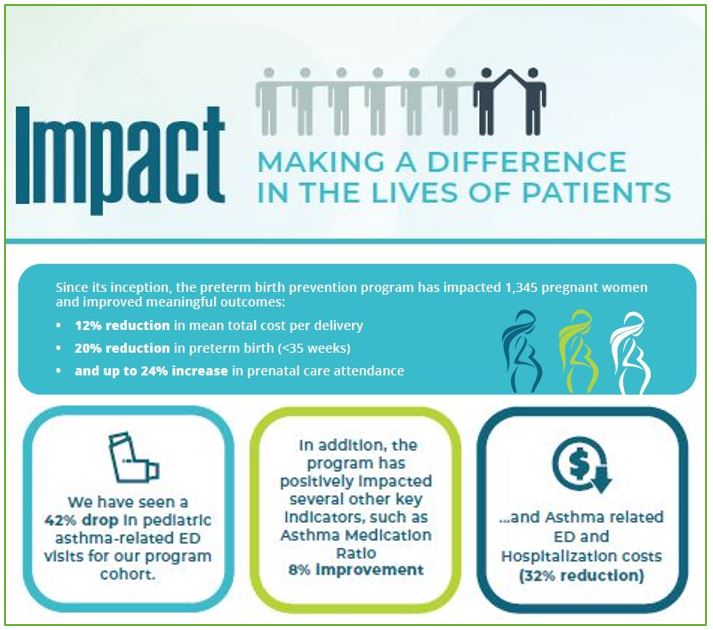PCCI Forecasts that Dallas County to reach COVID-19 Herd Immunity by mid-June
Dallas, Texas – Parkland Center for Clinical Innovation (PCCI), which improves healthcare for vulnerable populations using advanced data science and clinical experts, estimates Dallas County will reach a critical tipping point of COVID-19 “herd immunity” in late-June due to total case recoveries and vaccinations.
PCCI forecasts that Dallas County is on track to have 80 percent of the county residents at levels of COVID-19 “herd immunity” by early summer. This forecast is based on models estimating individuals who either have recovered from COVID-19 or who have received vaccinations.
“Our forecast is determined by the data, models and trends we have been monitoring and analyzing since the beginning of the pandemic and informed by the latest national and international research. We are optimistic that by early summer, much of Dallas County will reach herd immunity,” said Steve Miff, PhD, President and CEO of PCCI. “We will get to herd immunity either through continued infection, which is a slow route that will continue to harm the community and economy, or vaccinations. This underscores the importance of Dallas County residents registering for and receiving the COVID-19 vaccinations as quickly as possible and continuing to stay vigilant and safe from being infected. We’re also racing to stay ahead of the development and spread of existing or future new COVID-19 strains. We are in this together and will only get there though our collective and combined efforts.”

PCCI’s analysis, as of Feb. 22, indicates that the county has already reached 44 percent of the 1.9 million adult residents of Dallas County as either recovered from COVID-19 or in the process of receiving their full COVID-19 vaccine. That includes 922,460 COVID-19 confirmed and presumed infected and recovered, and 270,642 residents who have received their first (154,766) and second (115,875) vaccine shot.
“Reaching the tipping point for herd immunity is achievable with continued community effort,” said Thomas Roderick, PhD, Senior Director of Data and Applied Sciences at PCCI. “But parts of the county may not share the early benefits in our estimated forecast if they don’t keep pace with vaccines. Vaccines are also the best line of defense against COVID-19 variants, so it is critical that vaccines are made available to as many people as possible and county residents make it a priority to get vaccinated.”

PCCI’s forecast for herd immunity is based on widely accepted statistical analysis of spread and management of diseases within com
munities. Further, PCCI’s 80 percent range for reaching herd immunity is in line with national estimates, such as that of Anthony S. Fauci, MD, Director of the National Institute of Allergy and Infectious Diseases, who recently gave a range of 70 to 90 percent and the World Health Organization that gave a 60 to 70 percent range of infections and vaccines to reach herd immunity*.
PCCI’s forecast and estimates have been developed in coordination with and reviewed by community health leaders in Dallas County including experts at UT Southwestern Medical Center, Dallas County Health and Human Services and Parkland Health & Hospital System.
“Our predictions for Dallas County to reach its herd immunity tipping point include algorithms to predict total infections and forecasts of vaccination rates. We encourage the community to participate in virological studies such as the one conducted by our colleagues at UT Southwestern (https://utswmed.org/covidstudy/) so we can better understand the community infections and impact. We also need to register and vaccinate the most vulnerable as well as the rest of the population as soon as they are eligible,” said George ‘Holt’ Oliver, MD, PhD, Vice President of Clinical Informatics at PCCI.
PCCI will update its forecast monthly to understand how well the county is progressing toward its 80 percent vaccinated and infected and recovered rate. The updates will incorporate the latest data, intelligence and information from new studies, research and developments regarding the COVID-19 pandemic and impact of emerging strains.
PCCI has made available an important tool to help Dallas County residents stay vigilant and understand their personal risk, the MyPCI App, a free wed-base app that will help individuals make informed choices by providing an on-demand, location-based personal risk assessment of possible COVID-19 exposure. MyPCI is a sophisticated machine learning algorithm, geomapping and hot-spotting technology that uses daily updated data from Dallas County Health and Human Services (DCHHS) on confirmed positive COVID-19 cases and the population density in a given neighborhood. Based on density and distances to those nearby who are infected, the MyPCI App generates a dynamic personal risk score.
To use the MyPCI App, go to, https://pcci1.wpengine.com/mypci/, click on the link and register (Using code: GP-7xI6QT). Registration includes a request for individual location information that will be used only for generating a risk assessment, never shared. Once registered, simply login daily and a COVID-19 personal risk level score will be provided along with information to help individuals make informed decisions about how to manage their risk.
About Parkland Center for Clinical Innovation
Parkland Center for Clinical Innovation (PCCI) is an independent, not-for-profit, healthcare intelligence organization affiliated with Parkland Health & Hospital System. PCCI leverages clinical expertise, data science and social determinants of health to address the needs of vulnerable populations.
###
*New York Times, Dec. 24, 2020: “How Much Herd Immunity Is Enough?”
https://www.nytimes.com/2020/12/24/health/herd-immunity-covid-coronavirus.html
In The News: DCEO Healthcare covers the MyPCI App; a tool that gives you your COVID risk
Are You Likely to Get COVID-19 in Dallas? There’s an App for That.
January COVID-19 Vulnerability Index Update: Risks Intensifying to Highest Levels of The Pandemic
DALLAS – The post-Christmas and New Year’s holidays contributed to soaring risk values recorded by PCCI’s COVID-19 Vulnerability Index, beyond any previously recorded levels. However, with the end of the holiday season, PCCI experts are optimistic that January’s extreme spike is the infection’s peak.
 “With the major 2020 holidays concluded, over the next several months we can see the return to daily life on the horizon,” said Thomas Roderick, PhD, Senior Director of Data and Applied Sciences at PCCI. “With ongoing vigilance, including continued adhering to local health official guidance, social distancing, face covering, and registering for vaccinations as soon as you’re able, we can anticipate that the recent high case counts are behind us.”
“With the major 2020 holidays concluded, over the next several months we can see the return to daily life on the horizon,” said Thomas Roderick, PhD, Senior Director of Data and Applied Sciences at PCCI. “With ongoing vigilance, including continued adhering to local health official guidance, social distancing, face covering, and registering for vaccinations as soon as you’re able, we can anticipate that the recent high case counts are behind us.”
Launched in June, PCCI’s Vulnerability Index determines communities at risk by examining comorbidity rates, including chronic illnesses such as hypertension, cancer, diabetes and heart disease; areas with a high density of populations over the age of 65; and increased social deprivation such as lack of access to food, medicine, employment and transportation. These factors are combined with dynamic mobility rates and confirmed COVID-19 cases where a vulnerability index value is scaled relative to July 2020’s COVID-19 peak value. The PCCI COVID-19 Vulnerability Index can be found on its COVID-19 Hub for Dallas County at: https://covid-analytics-pccinnovation.hub.arcgis.com/.
While there are signs that the recent peak may be over, January’s Vulnerability Index numbers showed that Dallas County was severely battered by COVID-19, especially in the ZIP codes struggling with socioeconomic issues. For example, the ZIP code 75211, around Cockrell Hill, continues to top the most at-risk area in Dallas, as it has since the Vulnerability Index began recording data in June. However, in January, 75211, the area exceeded the record value that it set in December, increasing its vulnerability value by 38.9 points. The ZIP code 75243 holds the position as the second most vulnerable area in Dallas County with a vulnerability value of 129.99.

“The ZIP codes, 75211 and 75243 are two areas of Dallas County facing the highest socioeconomic challenges; the fact that they are the most identified as highly vulnerable to COVID-19 shows how the PCCI Vulnerability Index is helping shine the
light on where the help is needed most,” said Dr. Roderick. “The entire healthcare community in Dallas County is striving to equitably mitigate the spread of COVID-19, and the Vulnerability Index offers factual data to support that effort.”
Other ZIP codes with major leaps in their vulnerability values include 75217, 75204 and 75040. The top-most vulnerable ZIP codes averaged a vulnerability value of 100.53 in January compared to the top-most in December that averaged a vulnerability value of 79.77, underscoring the rise in cases from mid-December 2020 to mid-January 2020.
PCCI recently launched the MyPCI App, another program to help inform the residents of Dallas County to their individual risks. The MyPCI App, free to register and use, is a secure, cloud-based tool that doesn’t require personal health information and doesn’t track an individual’s mobile phone data. Instead, it is a sophisticated machine learning algorithm, geomapping and hot-spotting technology that uses daily updated data from the Dallas County Health and Human Services (DCHHS) on confirmed positive COVID-19 cases and the population density in a given neighborhood. Based on density and distances to those nearby who are infected, the MyPCI App generates a dynamic personal risk score.
To use the MyPCI App, go to, https://pcci1.wpengine.com/mypci/, click on the link and register (Using code: GP-7xI6QT). Registration includes a request for individual location information that will be used only for generating a risk assessment, never shared. Once registered, simply login daily and a COVID-19 personal risk level score will be provided along with information to help individuals make informed decisions about how to manage their risk.
“We have seen that proximity is one of the most important factors in pandemic management and personal protection,” said Dr. Roderick. “While we wait for vaccine programs to take hold, we can use the MyPCI App to control our own risk of exposure and help bend the curve.”
Data Sources:
To build Vulnerability Index, PCCI relied on data from Parkland Health & Hospital System, Dallas County Health and Human Services Department, the Dallas-Fort Worth Hospital Council, U.S. Census, and SafeGraph.
About Parkland Center for Clinical Innovation
Parkland Center for Clinical Innovation (PCCI) is an independent, not-for-profit, healthcare intelligence organization affiliated with Parkland Health & Hospital System. PCCI leverages clinical expertise, data science and social determinants of health to address the needs of vulnerable populations. We believe that data, done right, has the power to galvanize communities, inform leaders, and empower people.
###
PCCI’s New MyPCI App Informs Individuals of COVID-19 Exposure Risk
Rating tool for measuring COVID-19 risk adopted by the Diocese of Dallas Catholic Schools
Dallas, Texas – Parkland Center for Clinical Innovation (PCCI), which improves healthcare for vulnerable populations using advanced data science and clinical experts, has released the MyPCI App, a solution, exclusive to Dallas County, that will help individuals make informed choices by providing an on-demand, location-based personal risk assessment of possible COVID-19 exposure.
The MyPCI App, free to register and use, is a secure, cloud-based tool that doesn’t require personal health information and doesn’t track an individual’s mobile phone data. Instead, it is a sophisticated machine learning algorithm, geomapping and hot-spotting technology that uses daily updated data from the Dallas County Health and Human Services (DCHHS) on confirmed positive COVID-19 cases and the population density in a given neighborhood. Based on density and distances to those nearby who are infected, the MyPCI App generates a dynamic personal risk score.
To use the MyPCI App, go to, https://pcci1.wpengine.com/mypci/, click on the link and register (Using code: GP-7xI6QT). Registration includes a request for individual location information that will be used only for generating a risk assessment, never shared. Once registered, simply login daily and a COVID-19 personal risk level score will be provided along with information to help individuals make informed decisions about how to manage their risk.
“Proximity continues to remain one of the most important factors in pandemic management and personal protection,” said Steve Miff, PhD, PCCI’s President and CEO. “While we wait to receive a vaccine, we can control our own risk of exposure and help bend the curve. The MyPCI App is a simple to use tool that will give you an understanding of the COVID-19 risks in your vicinity and reinforce the need for social distancing, face covering and hand washing.”
(continue below video)
The MyPCI App is based on highly effective technology that has already been proven in the field. The app is built on the PCCI COVID-19 Proximity Index designed for the Parkland Health & Hospital System. The Proximity Index looked at the proximal risk score of patients who were scheduled for in-person medical appointments. If a person was identified at high or very high risk, the appointment was proactively shifted from an in-person visit to a telephonic or virtual visit – protecting both patients and health care providers. Also, timely screening and care plan was offered proactively. Data analyses from over 500,000 Parkland patients indicates that an individual with a high or very high proximity index had a seven times higher risk of ending up being infected. The success of this Parkland program has prompted additional development of the tool that is now available to the public as the MyPCI App.
“I am pleased that PCCI is making this service available to the public, as it uses the same tool which has helped us at Parkland better care for the Dallas County community by providing important information that indicates one’s risk for developing COVID,” said Brett Moran, MD, Chief Medical Informatics Officer for Parkland. “Parkland and PCCI have been using these algorithms from early in the pandemic to effectively provide outreach to high-risk individuals which helps them as well as their family, friends and the community at large.”
To ensure all residents of Dallas County can use this tool to empower themselves with better information, the MyPCI App is also available at Parkland at https://www.parklandhospital.com/information-about-coronavirus-disease-2019-covid19, using PARK-xaoHtR registration code. It is also available at the Dallas County Health and Human Services Department at http://www.dallascounty.org/covid-19/ using DCHHS-62ta7b registration code.
“We have been pleased throughout this pandemic to be partnering with PCCI so that we can use their cutting-edge technology and data applications to address COVID-19,” said Dr. Philip Huang, MD, MPH, Director of Health and Human Services for Dallas County. “This latest tool is another example of how Dallas County benefits from the tremendous resources and partnerships we have here.”
An early, enterprise-wide adopter of the MyPCI App is the Diocese of Dallas Catholic Schools, to help better inform its student’s parents. The Diocese of Dallas Catholic Schools represents more than 61,000 students in 38 different schools, many of which are in Dallas County. Parents using the MyPCI App will receive information allowing them to work collaboratively with teachers and administrators in an informed way.
“We are always looking to innovate and partnering with PCCI on this initiative is a great opportunity to empower our parents and families with information that makes then engaged partners with our team in containing the virus and keeping our staff and students safe,” said Matt Vereecke, Superintendent of Schools, Catholic Diocese of Dallas.
A goal for PCCI in rolling out the MyPCI App, is to give tools and information to help Dallas County residents to make the most informed decisions possible as the COVID-19 pandemic continues to spread and while the vaccination program becomes more widespread.
“The key for all residents of Dallas County to help mitigate the spread of COVID-19 is to register and use the MyPCI App as quickly as possible,” said Dr. Miff. “While we are very encouraged by the vaccination initiatives, they will take time take, which means now is not the time to let our guard down. The pandemic is still raging, so we need to use personal information and awareness about our own individual and household risks to re-enforce and manage the things that we can control while we wait for broad implementation of vaccines.”
About Parkland Center for Clinical Innovation
Parkland Center for Clinical Innovation (PCCI) is an independent, not-for-profit, healthcare intelligence organization affiliated with Parkland Health & Hospital System. PCCI leverages clinical expertise, data science and social determinants of health to address the needs of vulnerable populations.
###
Get Your COVID19 Person Risk Score Now
To register and login to the MyPCI App to quickly understand your personal risk of COVID-19 exposure in Dallas County, please click on the image below below or go to: https://mypci.pccinnovation.org/my-proximity to register, Using code: GP-7xI6QT. The first assessment takes 24 hours.

In the News: Dallas Innovates – Steve Miff an “Innovator and Disruptor” You Need to Know in 2021
A leading technology media outlet, Dallas Innovates, has included Steve Miff in its news story, “Meet the Future 50: Dallas-Fort Worth Innovators and Disruptors You Need to Know in 2021.” The story includes Steve as a “Care Community Builder” and notes the outstanding work by PCCI during the COVID-19 outbreak as well as the publishing of its book, “Building Connected Communities of Care.” Here is an excerpt and link to the story.
“When COVID-19 began impacting North Texas in March, the data science and clinical experts at PCCI were already hard at work on ways to improve health in the underserved areas of Dallas. The team quickly built, tested, and deployed several patent-pending analytical models using machine learning and geomapping to visualize the progression of cases across the area.”
For the full story, click on the image below:
http://s24806.pcdn.co/future50dallasfortworth2021/
PCCI IMPACT: Serving The Whole Community
PCCI strives to achieve the broadest community-wide impact through: (1) support of initiatives closing the gap between
providing clinical care and addressing non-medical needs to positively impact whole-person health; (2) support of
Parkland and its CHNA strategic priorities; and (3) support of PCHP as it strives to quantify community impact.
Below is a sample of PCCI’s work that is having an important impact on our community. For a much more detailed report, contact us for a copy of PCCI’s Annual Impact Report, where PCCI’s actions are shared in much greater detail.
To get the full Annual Impact Report, please click HERE, select “other” and in the message box, add “Annual Impact Report” to receive your electronic copy.
PCCI Impact: Optimizing How Care Is Delivered in 2020
In addition to PCCI’s critical collaboration with Parkland to address the care capacity and front line care-management
challenges resulting from the COVID-19 pandemic, we have continued efforts this year to develop tools that enable care delivery teams to intervene earlier, respond differently, or prioritize engagement strategies. For example, our The Parkland Trauma Index of Mortality and PARADE (Patients at Risk for Adverse Drug Events) projects provide innovative and practical tools for improving clinical outcomes.
Below is a sample of PCCI’s work that is having an important impact on how providers deliver care. For a much more detailed report, contact us for a copy of PCCI’s Annual Impact Report, where PCCI’s actions are shared in much greater detail.
To get the full Annual Impact Report, please click HERE, select “other” and in the message box, add “Annual Impact Report” to receive your electronic copy.
PCCI IMPACT: MAKING A DIFFERENCE IN THE LIVES OF PATIENTS IN 2020
In 2020, PCCI’s focus on supporting our under-served populations leveraging data and clinical expertise continued full speed ahead. Our success and experience with both our pediatric asthma and preterm birth prevention programs have formed the foundation for new initiatives with community partners. Below is a sample of PCCI’s work that is having an important impact on making a difference in the lives of patients. For a much more detailed report, contact us for a copy of PCCI’s Annual Impact Report, where PCCI’s actions are shared in much greater detail.
To get the full Annual Impact Report, please click HERE, select “other” and in the message box, add “Annual Impact Report” to receive your electronic copy.



